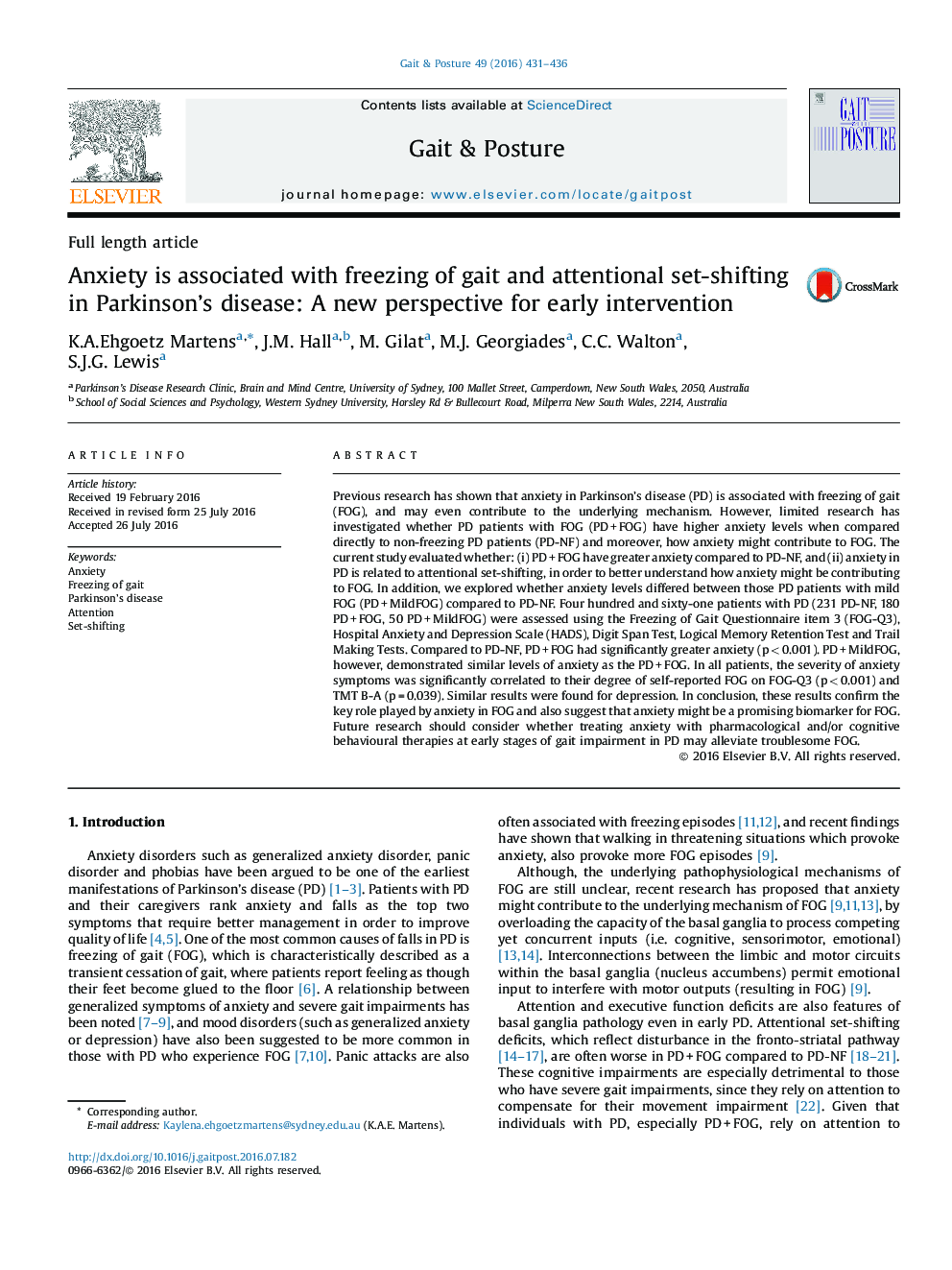| کد مقاله | کد نشریه | سال انتشار | مقاله انگلیسی | نسخه تمام متن |
|---|---|---|---|---|
| 6205515 | 1603846 | 2016 | 6 صفحه PDF | دانلود رایگان |
- Anxiety is greater in PD patients who experience FOG compared to those who do not.
- Anxiety may contribute to set-shifting deficits often seen in PD patients with FOG.
- Anxiety may be a useful biomarker to identify those at risk for developing FOG.
Previous research has shown that anxiety in Parkinson's disease (PD) is associated with freezing of gait (FOG), and may even contribute to the underlying mechanism. However, limited research has investigated whether PD patients with FOG (PD + FOG) have higher anxiety levels when compared directly to non-freezing PD patients (PD-NF) and moreover, how anxiety might contribute to FOG. The current study evaluated whether: (i) PD + FOG have greater anxiety compared to PD-NF, and (ii) anxiety in PD is related to attentional set-shifting, in order to better understand how anxiety might be contributing to FOG. In addition, we explored whether anxiety levels differed between those PD patients with mild FOG (PD + MildFOG) compared to PD-NF. Four hundred and sixty-one patients with PD (231 PD-NF, 180 PD + FOG, 50 PD + MildFOG) were assessed using the Freezing of Gait Questionnaire item 3 (FOG-Q3), Hospital Anxiety and Depression Scale (HADS), Digit Span Test, Logical Memory Retention Test and Trail Making Tests. Compared to PD-NF, PD + FOG had significantly greater anxiety (p < 0.001). PD + MildFOG, however, demonstrated similar levels of anxiety as the PD + FOG. In all patients, the severity of anxiety symptoms was significantly correlated to their degree of self-reported FOG on FOG-Q3 (p < 0.001) and TMT B-A (p = 0.039). Similar results were found for depression. In conclusion, these results confirm the key role played by anxiety in FOG and also suggest that anxiety might be a promising biomarker for FOG. Future research should consider whether treating anxiety with pharmacological and/or cognitive behavioural therapies at early stages of gait impairment in PD may alleviate troublesome FOG.
Journal: Gait & Posture - Volume 49, September 2016, Pages 431-436
